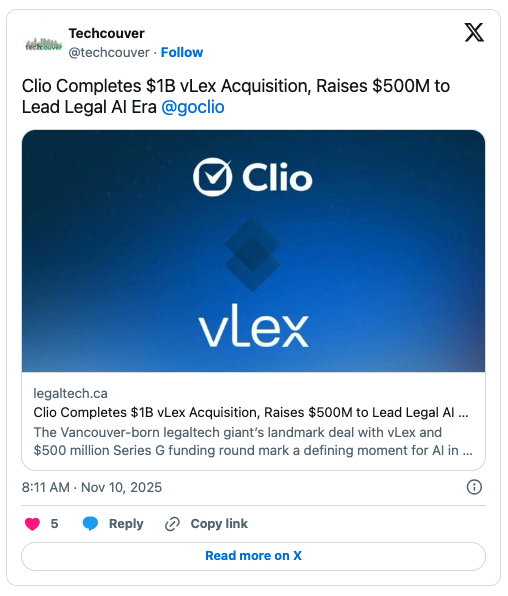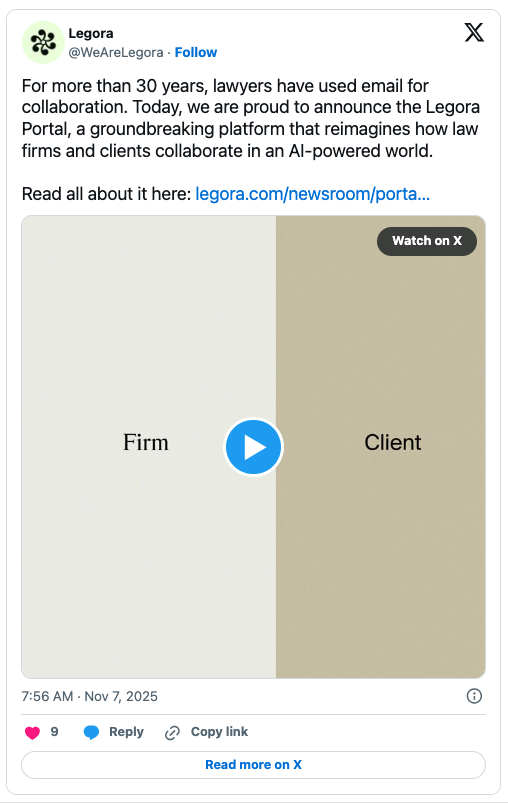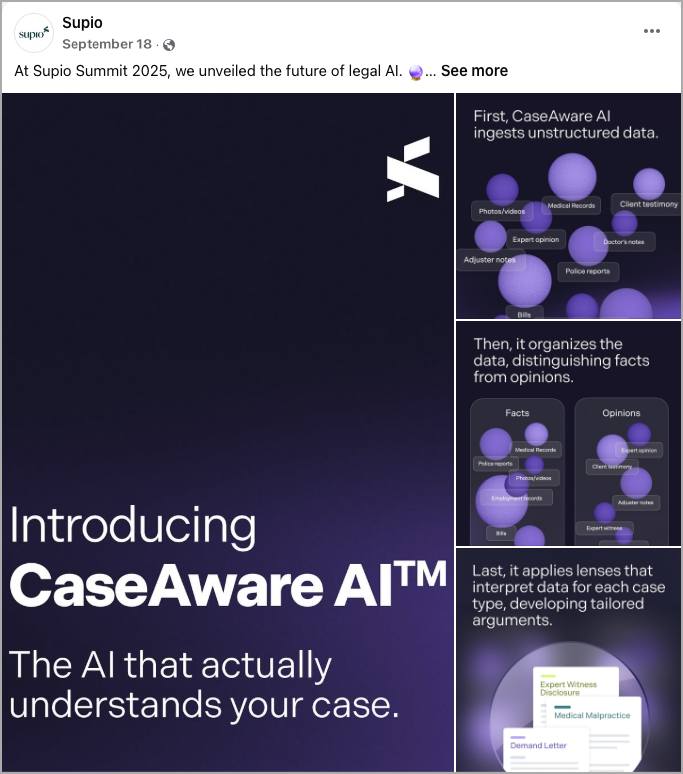Artificial Intelligence (AI) has emerged as a transformative force across virtually every industry, but its impact on the legal sector is nothing short of revolutionary. In 2025, the world is witnessing an unprecedented boom in Legal AI funding, with investors pouring billions of dollars into startups aiming to redefine how legal services operate. As law firms and in-house counsel increasingly embrace automation, analytics, and AI-driven solutions, the legal tech landscape is evolving rapidly, prompting a surge of venture capital, partnerships, and acquisition activity.
The Legal AI Surge: Setting the Stage
For decades, legal work was characterized by manual processes, time-consuming research, and human-intensive review. AI disrupted this status quo by introducing machine learning models capable of parsing vast troves of legal documents, generating predictions, and automating routine tasks. As early as 2022, startups in the legal tech space gained attention, but in 2025, funding reached record-breaking levels to the tune of $2.4 billion at the time of this writing, signaling investor confidence in AI’s potential to reshape law.
Just last week, Clio secured one of the largest single Legal AI rounds $500 million at $5 billion valuation and acquired vLex for $1 billion to establish a unified AI-driven legal platform. The Burnaby, British Columbia company’s AI-first solution integrates every aspect of legal workflows, from research and drafting to operations. In the same week, GC AI, which makes AI tools for in-house corporate legal teams for tasks like drafting documents, research and analyzing contracts raised $60 million in a funding round.
The Legal AI Market
To understand the magnitude of this technological revolution and investment opportunity, we must first look at the Legal AI market. The global legal AI market size was valued at $1.45 billion in 2024 and is projected to reach $3.90 billion by 2030, with North America leading the market.
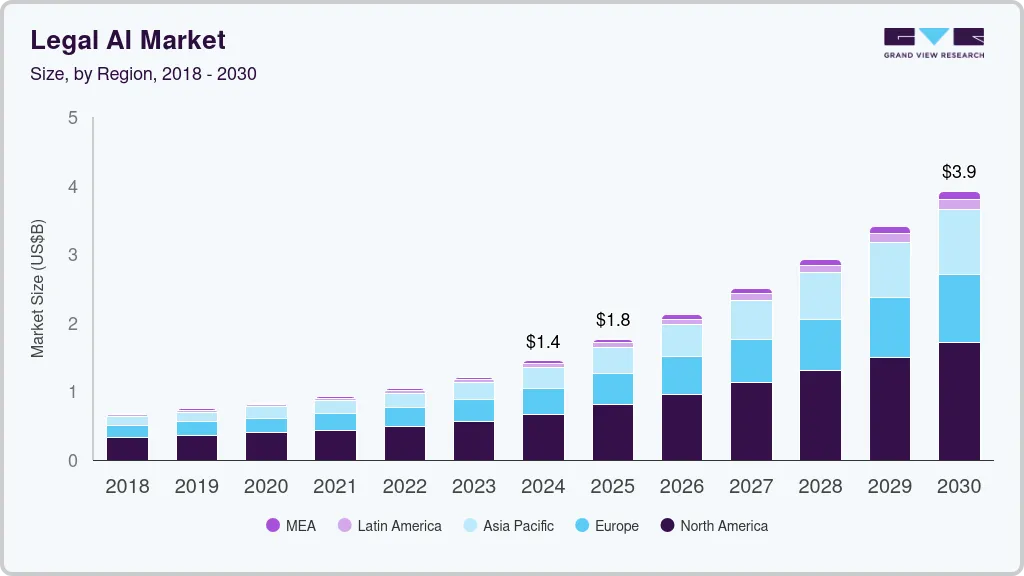
The growth of the industry can be attributed to the upsurge in demand for automation in legal applications such as eDiscovery, case prediction, regulatory compliance, and contract review and management, among others. Law firms and legal departments face the challenge of managing large volumes of data and documents.
How AI Is Transforming Legal Workflows
Next, we must recognize this influx of $2.4 billion into Legal AI in 2025 isn’t just hype, it’s fueling tangible change across the legal landscape. As law firms and in-house legal teams seek greater efficiency, accuracy, and cost savings, artificial intelligence has emerged as a linchpin in the modernization of legal workflows. Let’s explore exactly how AI-powered tools are revolutionizing the day-to-day practice of law.
Contract Analysis and Lifecycle Management
Traditionally, managing thousands of legal contracts consumed countless human hours. Today, AI platforms automate the ingestion, parsing, and lifecycle monitoring of these documents. Natural language processing (NLP) algorithms extract key data such as terms, deadlines, renewal dates, and obligations, then proactively alert legal teams to risks or necessary actions months in advance. And the ROI for Legal AI adoption is compelling, as legal departments that adopted contract review AI see review times drop by up to 60% and missed obligations decrease by 30%.
Litigation and Case Prediction
AI’s ability to analyze massive datasets is transforming litigation strategy. Neural networks, trained on millions of historical case files, court opinions, and judge behaviors, now provide powerful case prediction capabilities. AI tools now give attorneys data-driven insights into likely case outcomes, potential risks, and effective case law analogs. This predictive analytics assists legal teams in evaluating case merits early on, planning litigation budgets, or even determining whether to settle or proceed to trial. The American Bar Association found in a study analyzing hundreds of similar cases, judge profiles, and court rulings, AI predicted an 80% chance of winning a case if they took it to court.
E-Discovery and Document Review
Handling e-discovery, particularly in large-scale litigation, is notoriously labor intensive and costly. AI-driven tools like Relativity, OpenText, and Everlaw now automate the analysis of terabytes of documents, swiftly culling irrelevant material, surfacing critical evidence, and flagging privileged communications. By leveraging machine learning and pattern recognition, these platforms have slashed e-discovery efforts from months to mere days or weeks. A report from Epiq Global noted that law firms leveraging advanced e-discovery tools might see review time cut by as much as 80%.
Self-Service Legal Tools for SMBs and Consumers
Legal AI isn’t just for big law; it’s democratizing access to justice for small businesses and everyday consumers as well. Platforms like LegalZoom, DoNotPay, and Rocket Lawyer use AI-powered chatbots and guided wizards, allowing users to draft contracts, respond to legal notices, and resolve disputes, all without steep legal bills. And the demand is swelling, as reports show that 37% of small businesses and 54% of millennials prefer legal services that include self-serve AI options.
Recent Funding Rounds and Notable Legal AI Innovators
Building on industry momentum, some of the most prominent players in the Legal AI space have secured significant investments, underscoring their influence and growth potential. Recent funding rounds and notable innovative companies are shaping the future of legal technology.
Harvey: $150M Series D (October 2025)
San Francisco-based Harvey has become the Legal AI category’s big story. The three-year-old startup raised two $300 million rounds in 2025, and most recently, a $150 million funding round, pushing its total to over $750 million with a valuation topping $8 billion. Harvey uses domain expertise to convert professional processes into high-quality AI agents that produce expert-quality work product. With nearly 84,000 LinkedIn followers, the company has one of the most impressive social media channels in the industry.
Eve: $103M (September 2025)
Based in San Francisco, Eve raised a $103 billion Series B at a $1 billion valuation. The company’s architecture is designed to be agile, allowing it to harness the latest breakthroughs from the AI industry, rigorously validate them for legal accuracy, and deploy them to clients through an easy-to-use interface and workflows. “For the last couple of years, AI was just for summarizing depositions and medical records, but it’s becoming so much more than that. And we’re weaving in AI, Eve, into everything we do,” said the founder of Mike Morse Law Firm.
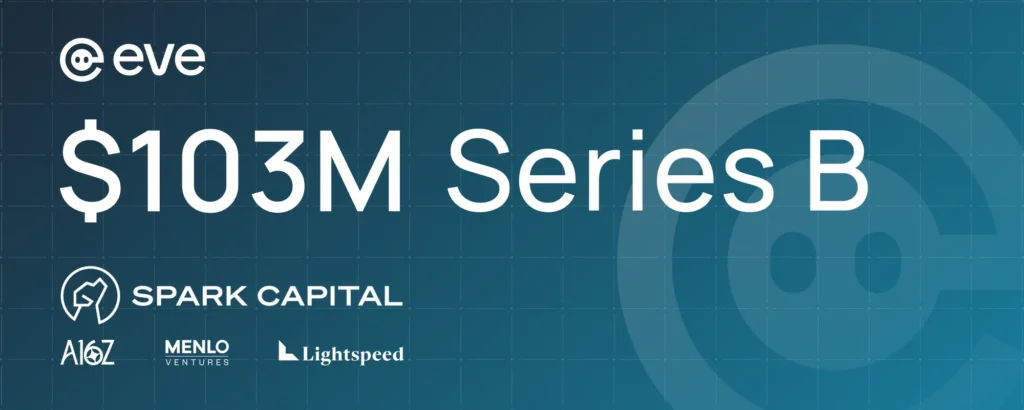
Source: Eve Website
Legora: $150M Series C (October 2025)
Not all Legal AI investments were in U.S.-based companies. Swedish AI startup Legora raised $150 million in October after an $80 million Series B round in May. The company’s collaborative AI platform helps lawyers review and research faster, draft smarter, and advise with precision. Max Junestrand, CEO and co-founder of Legora, commented: ‘Legal professionals across the globe are adopting AI into their work at an unprecedented rate.”
DeepJudge: $41.2M Series A (November 2025)
In another European victory, Zurich-based Legal AI startup DeepJudge secured $41.2 million in an oversubscribed Series A round. The company’s platform connects firms’ internal systems to AI-powered search and retrieval agents without moving data. Its legal-native retrieval engine underpins bespoke AI workflows and generative tools with precision and security.
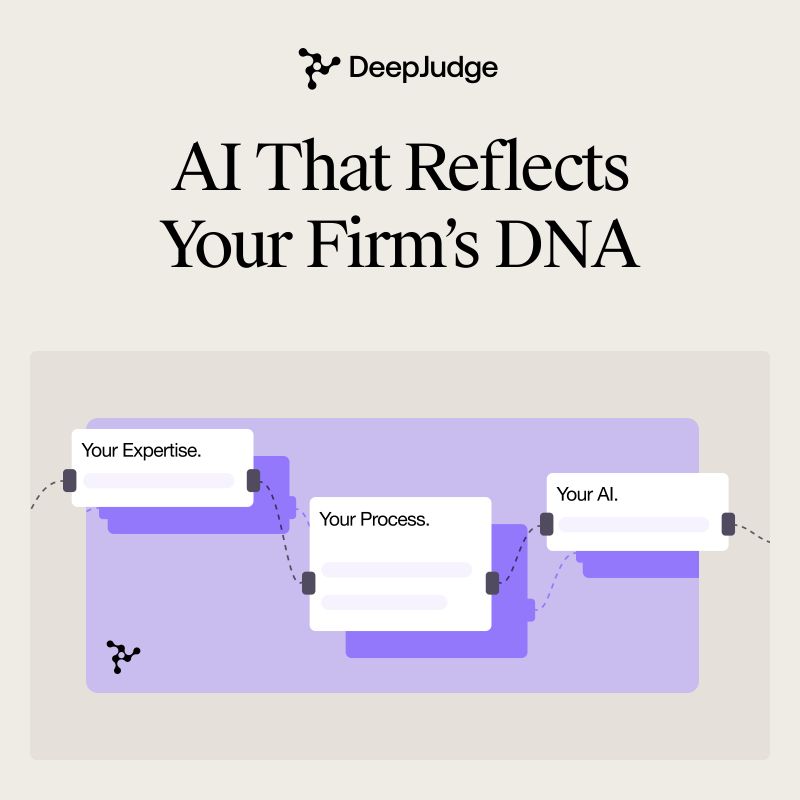
Spellbook: $50M Series B (October 2025)
Toronto-based Spellbook raised $50 million in a Series B round for its contract review solution. The company has grown to 4,000 law firms and in-house legal teams in 80 countries. Scott Stevenson, CEO and co-founder of Spellbook, said, “We’re at the spreadsheet moment for lawyers. Just as spreadsheets transformed accounting, large language models are transforming law after 20 years of technological stagnation.”
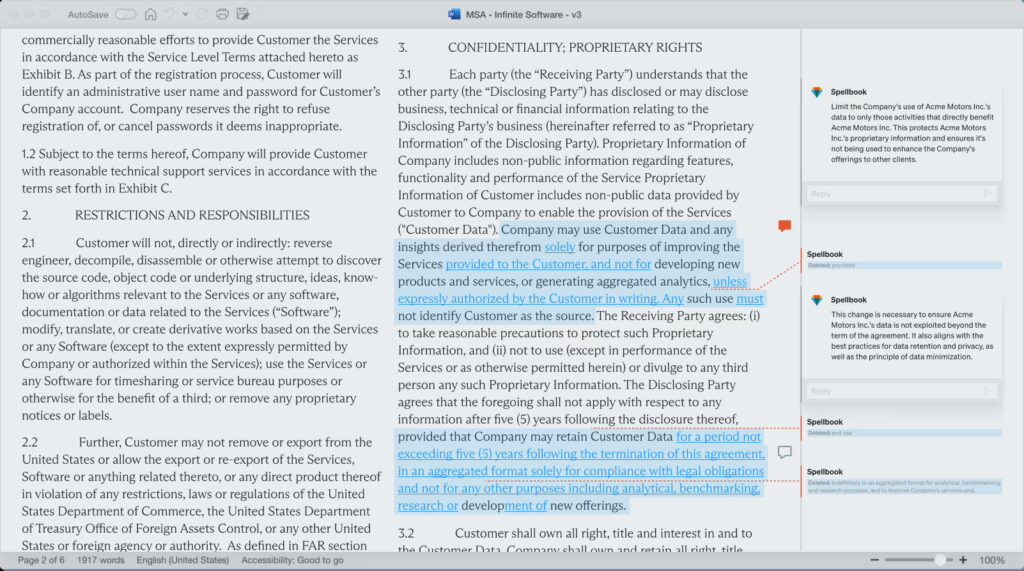
Source: SpellBook Website
IronCladAI: $82M Series C (January 2025)
IronCladAI, headquartered in San Francisco, further solidified its leadership in contract lifecycle management by raising $82 million in its Series C funding round. The round was backed by GV (Google Ventures) and Menlo Ventures, reflecting growing investor confidence in IronCladAI’s generative AI-driven platform. The company’s tools automate contract creation, negotiation, and risk analysis for large enterprises, drastically reducing legal bottlenecks and administrative overhead.
Supio: $60M Series B (March 2025)
Seattle-based legal tech startup Supio brought in $60 million in Series B funding to scale its AI-powered platform for personal injury and mass tort law firms. The niche industry platform combines domain-specific AI with human expert verification to help law firms process unstructured legal and medical data, improving accuracy and outcomes in litigation. The company is noted for transforming how personal injury and mass tort litigation is practiced through specialized AI.
Notable Legal AI Innovator: Robin AI
Tough last funded in late 2024, and since then propelled by growing revenue, this rundown of recent Legal AI investments and notable innovators wouldn’t be complete without mentioning Robin AI. The company has a product capable of analysing thousands of legal documents simultaneously for procedures like due diligence, data breach responses, and compliance. The solution combines sophisticated analytics with practical recommendations. Robin AI has considerable momentum with Fortune 500 firms, positioning itself notable in the enterprise legal AI space. Major clients including UBS, GE, Pfizer, PepsiCo, and PwC use their platform.

Source: Robin AI Website
Robin AI has also developed uniquely compelling branding and messaging, setting it apart from others in the industry. Its vibrant, bold colors and floral motifs evoke a sense of calm and tranquility, a striking contrast to the often hectic, fast-paced world of legal executives. The company’s messaging is well-coordinated with this theme, prominently featuring the statement, “Answering legal questions shouldn’t take days,” on its website.
Key Drivers Behind the Funding Frenzy
Corporate General Counsels as Innovation Catalysts
Within large corporations, particularly among Fortune 1000 companies, in-house legal teams are evolving into strategic innovation hubs rather than mere overseers of legal compliance. These teams are shifting their budgets toward advanced technological solutions capable of providing actionable intelligence, mitigating legal and operational risks, and expediting critical business transactions like mergers, acquisitions, and regulatory filings. This strategic realignment positions general counsel as champions of digital transformation, creating a fertile environment for Legal AI vendors to scale swiftly and effectively. Their influence accelerates the adoption of AI tools across corporate legal departments, driving wider industry change.
Navigating Regulatory Complexity and Globalization
The legal landscape is becoming more intricate and dynamic, driven by increasingly complex regulations in data privacy, cross-border trade, environmental standards, and social governance. Companies operating across multiple jurisdictions require agile, intelligent tools capable of decoding jurisdiction-specific laws and ensuring compliance without compromising speed or efficiency. AI solutions are indispensable in parsing jurisdictional variances, monitoring evolving regulatory requirements, and providing proactive compliance measures, especially for multinational corporations navigating a constantly shifting legal environment. This demand further fuels the growth of Legal AI startups that specialize in regulatory analysis and global legal compliance tools.
Consumerization of Legal Services
The legal industry is experiencing a democratization akin to the transformations seen in fintech. From solo entrepreneurs and gig workers to small businesses and consumers, there is an escalating expectation for instant, affordable legal assistance. This growing consumer appetite for accessible legal services is catalyzed by AI-powered chatbots, self-service platforms, and on-demand legal advice systems. These innovations emulate how fintech revolutionized investment accessibility by democratizing complex financial products. Legal AI startups are stepping into this space, offering user-friendly, cost-effective solutions that provide quick legal guidance, document review, and incident management.
Investor Perspective: Why Legal AI Is “Hot” in 2025

Source: AI-Generated by Andre Bourque
Massive Market Opportunity
Investors now recognize this technological inertia as a “blue ocean” opportunity: a space with little competition, primed for sweeping transformation. With AI’s demonstrated successes in other sectors, they see substantial potential to radically improve efficiency, accuracy, and access to justice by digitizing and automating legal work.
Clear Cost-Saving Business Models
Unlike many tech trends that fizzle due to unclear monetization, legal AI’s value proposition is straightforward and financially compelling. Legal professionals and clients are perpetually seeking ways to reduce extensive billable hours spent on repetitive or routine tasks such as document review, contract analysis, e-discovery, and research. AI platforms can automate much of this work, translating immediately to significant cost reductions for clients and improved margins for legal service providers. The prevailing business model is typically SaaS, with flexible, usage-based or recurring subscriptions, allowing both law firms and in-house teams to scale costs with their actual workload. This ensures steady, predictable revenues for vendors and rapid return on investment for customers, building investor confidence in both the sustainability and scalability of legal AI startups.
Defensibility and Proprietary Data
A key factor for long-term success in the legal AI space is defensibility, how well a business can maintain its competitive edge. Startups in this arena often build powerful moats through access to proprietary data that is difficult for new entrants to replicate. This data can include anonymized case law, unique contract templates, historical court outcomes, or the creation of large language models specifically fine-tuned for legal reasoning and document analysis. These assets not only enhance the accuracy and effectiveness of AI tools, but also create significant barriers for competitors. For venture capital and private equity firms, defensibility via proprietary data is a highly attractive proposition. It suggests that the company can maintain industry leadership, command premium pricing, and be immune to purely commoditized competition, making these businesses highly desirable investment targets.
M&A and Exit Momentum
The flurry of mergers, acquisitions, and successful exits is adding further excitement to the legal AI gold rush. Major law firms, established legal services conglomerates, and global information providers are racing to acquire innovative AI startups, both to leapfrog competitors and to expand their technology offerings. Recent headline deals—such as Consilio’s acquisition of TrueLaw, or Wolters Kluwer’s purchase of Libra Technology—highlight that the exit pathway for founders and investors is both viable and lucrative. These high-profile exits not only validate investor bets, but also stoke more interest among entrepreneurs and venture capital firms, understanding that even early-stage innovation can quickly translate into significant returns through acquisition.
The Road Ahead: 2026 and Beyond
Current trends suggest that by 2026, AI will be ingrained in virtually every facet of legal operations, from client intake to courtroom advocacy. The 2025 funding boom is likely only a precursor to even greater integration, as technology matures and early results demonstrate solid ROI for legal stakeholders of all sizes. As AI continues to mature, the pace of change will only accelerate, ushering in a new era in legal services characterized by speed, accuracy, and accessibility. For law firms, corporate counsel, and entrepreneurs alike, the message is clear: embrace AI, or risk being left behind in the coming legal revolution.
What to Expect Next Year in Legal AI
The legal AI sector is poised for even greater change and opportunity in the year ahead. As rapid innovation and fierce competition continue, several trends and technological advances are expected to define the landscape:
Model Context Protocol (MCP): Bridging AI and Legal Data Systems
Expect the adoption of Model Context Protocol (MCP) standards to rise throughout the industry. MCPs enable seamless interoperability between AI engines and the vast array of legal data silos found within law firms, corporate legal departments, and government agencies. By acting as a bridge, MCP ensures that AI tools can securely access, contextualize, and update information across contract databases, litigation dockets, compliance platforms, and more, paving the way for “plug and play” integration of new legal AI solutions. This will not only drive improved workflow efficiency but will also unlock the ability to leverage generative AI models on proprietary, sensitive documents without risking data leakage.
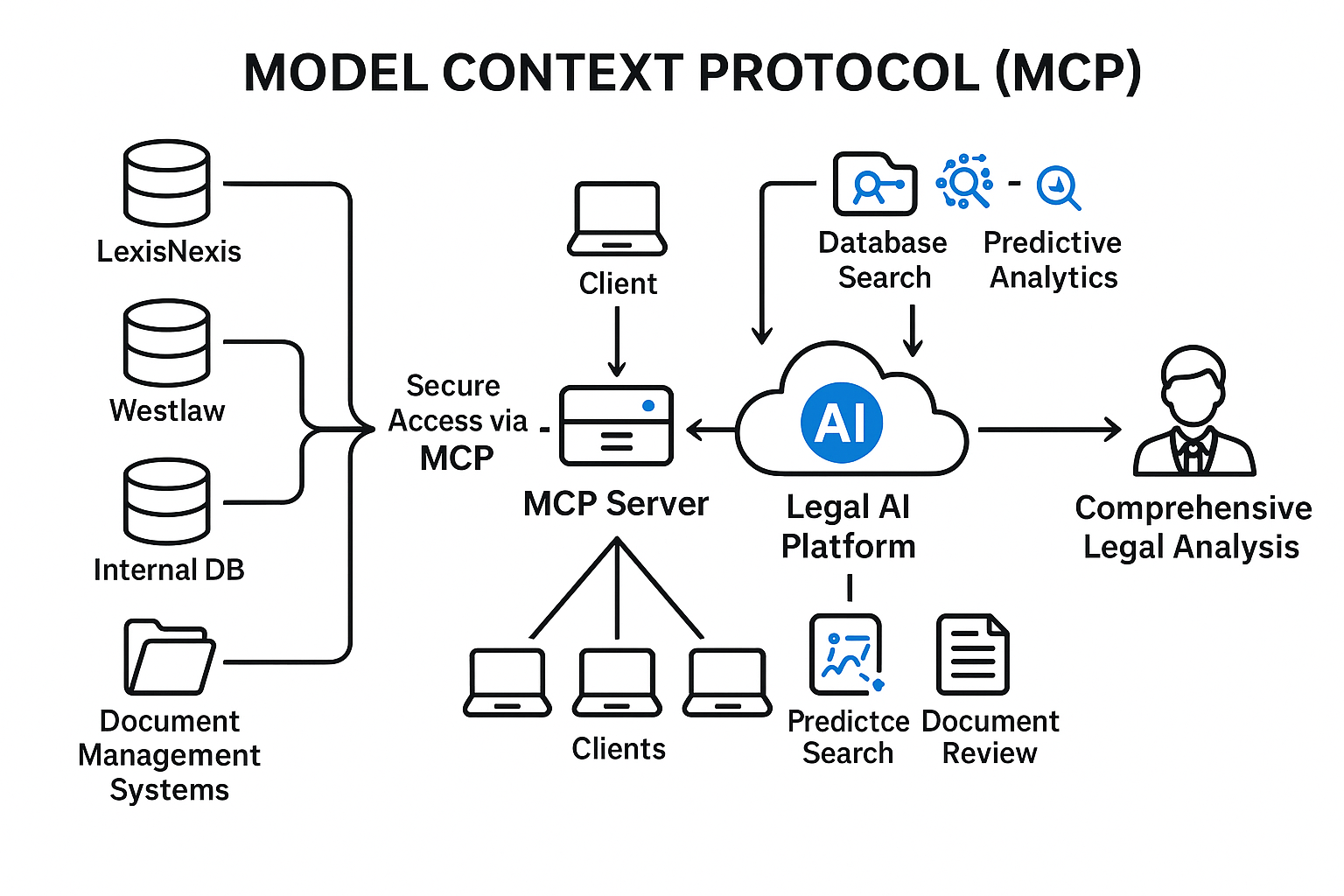
Source: Kama Thuo, PLLC
Deeper Verticalization: Domain-Specific AI Tools
The next wave of innovation will come in the form of highly verticalized, domain-specialized legal AI solutions. Rather than offering broad-stroke capabilities, leading startups and established providers will focus on building tools for niche but high-impact areas such as:
- Insurance claim dispute resolution
- Data privacy compliance (e.g. GDPR, CCPA)
- Intellectual property portfolio management
- Environmental, Social, and Governance (ESG) reporting
- Real estate and construction contracts
- Healthcare regulatory analysis
Such verticalization will allow for domain-trained models that deeply understand the intricacies, workflows, and data models unique to each legal specialty, outperforming generic AI alternatives and dramatically reducing the “last-mile problem” for users.
International Expansion: Multilingual, Cross-Jurisdictional AI
The era of regional or English-only legal AI is ending. Next year will see aggressive international expansion from both fast-scaling startups and incumbents. Legal AI platforms are already rolling out multi-language capabilities, adapting to local legal systems, and integrating jurisdiction-specific data and precedents at unprecedented speed. The result: companies operating across borders will gain AI-powered compliance, contract review, and litigation support that is contextually aware and locally relevant in every market where they do business.
Rise of Alternative Legal Service Providers (ALSPs)
AI’s proliferation is set to further empower alternative legal service providers (ALSPs), firms outside the traditional law firm structure, including legal process outsourcers, technology-first consultancies, and new market entrants. Equipped with cutting-edge AI, ALSPs can now deliver legal research, document review, contract drafting, e-discovery, and regulatory monitoring services that rival or even surpass traditional law firm offerings, often at a fraction of the cost.
This shift will intensify competition and accelerate market innovation, driving established law firms to adopt more AI-powered processes themselves or risk losing clients to nimbler, tech-enabled newcomers. The consumerization trend, making legal services more accessible, affordable, and transparent, will only pick up speed.
Foundation for Next-Gen Legal Markets
Underpinning all these trends is a sustained influx of capital (with $2.4B invested in 2025 alone), breakthroughs in large language models and data infrastructure, and a maturing, vibrant legal tech ecosystem. Investors see a clear runway for growth: AI-native legal platforms can rapidly deliver cost savings, revenue growth, and deeper defensibility through proprietary data and tech.
In sum, expect 2025 to be the year the legal industry begins operating at a fundamentally new scale of:
- Speed (matters resolved in minutes, not days)
- Accuracy (AI models cut billing errors and compliance risks)
- Access (self-serve and low-cost options for SMBs and individuals)
- Insight (data-driven decision-making for every legal professional)
The world’s largest law firms, major enterprises, ALSPs, solo practitioners, and consumers alike will benefit—but only if they keep pace with the next generation of legal AI technology.
Feature Image: AI-Generated by Andre Bourque



